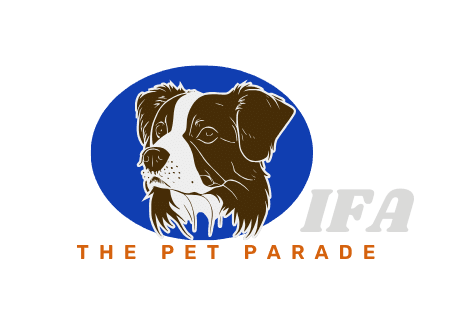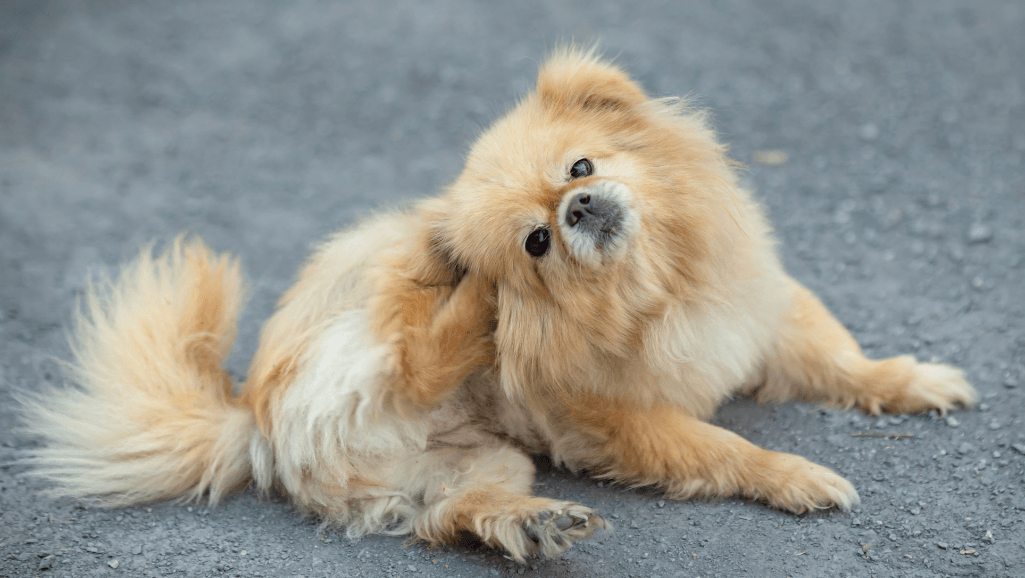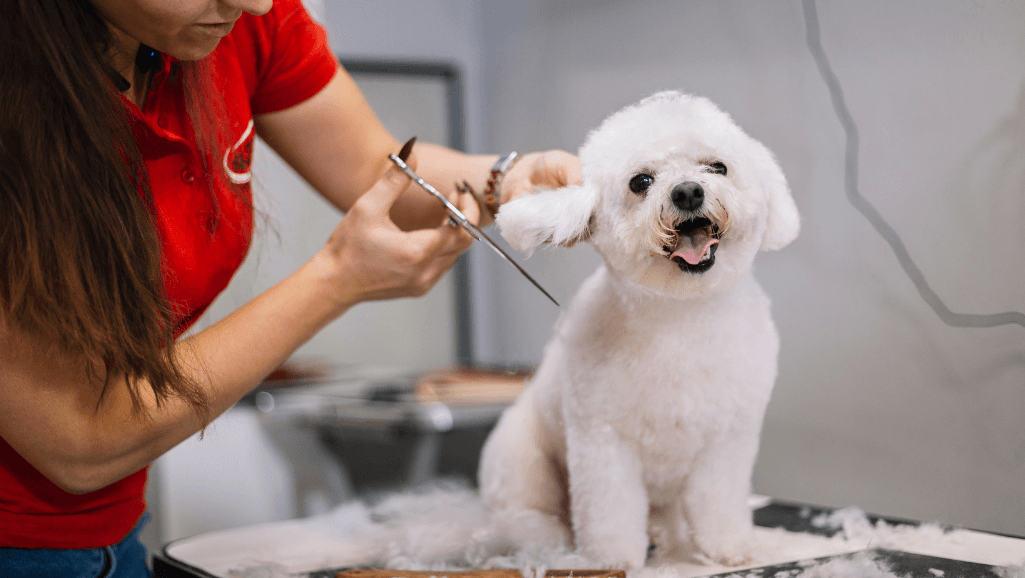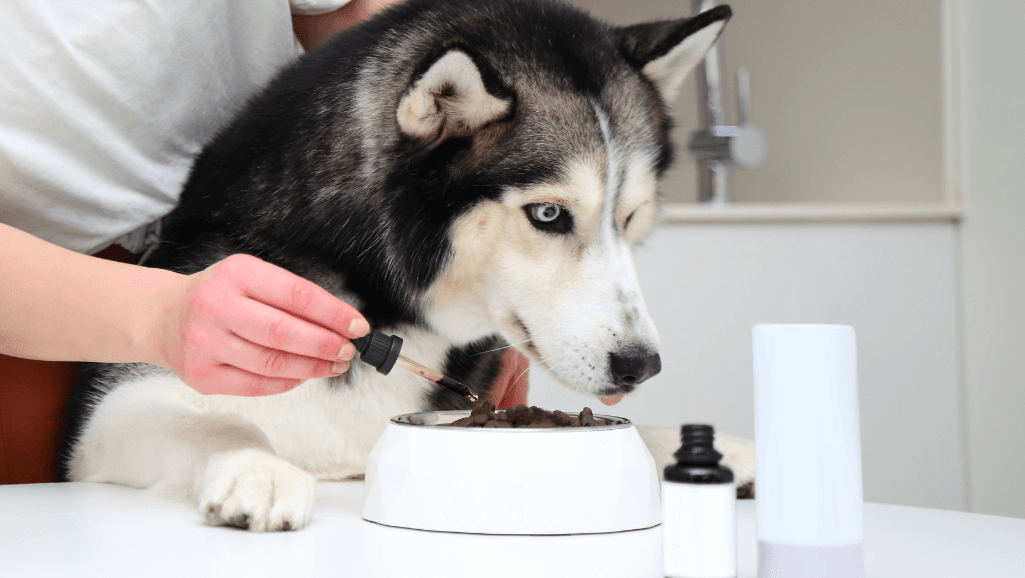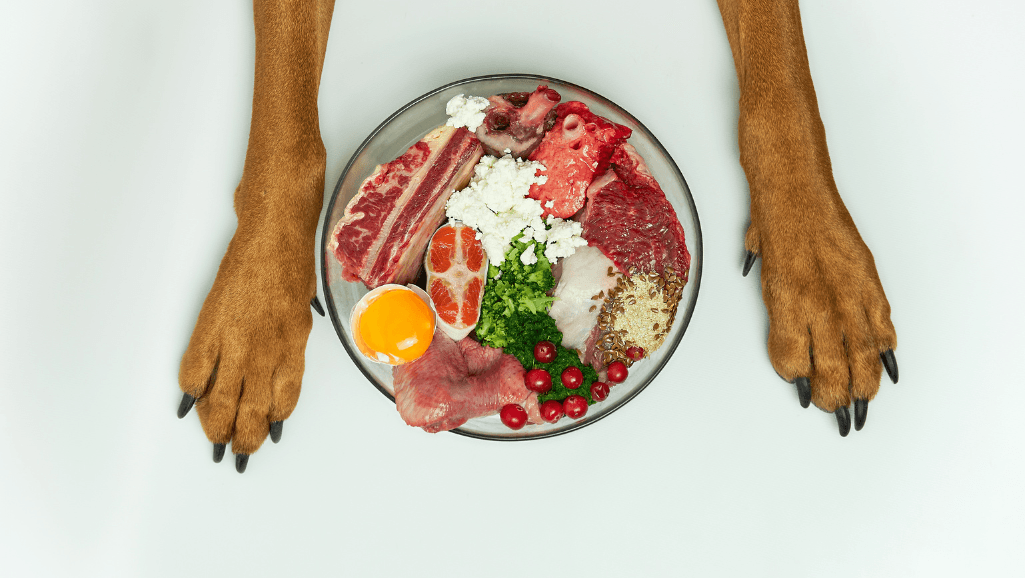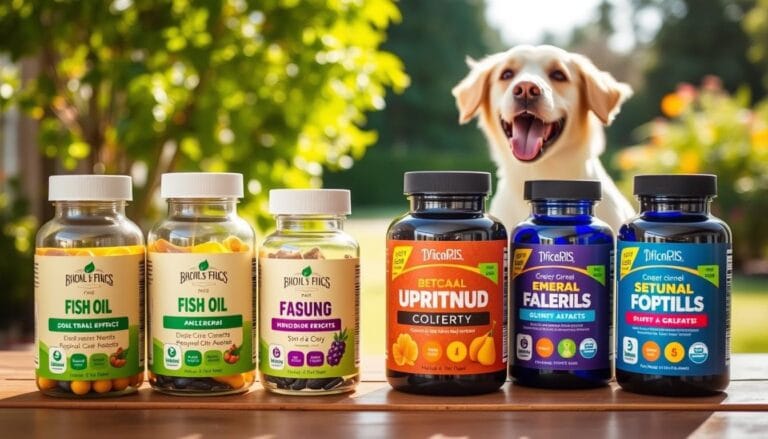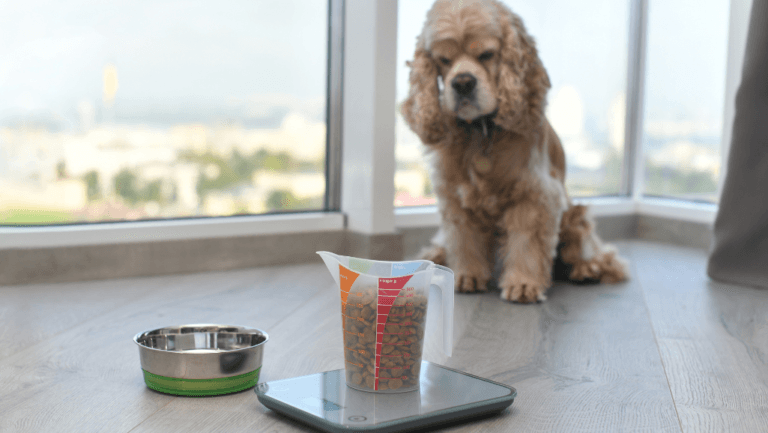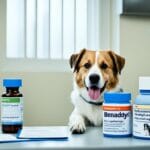Achieving a healthy and shiny coat for your dog is crucial for their overall well-being. Just like humans, dogs can experience various skin conditions that can affect the appearance and health of their coat. It’s important to understand the factors that contribute to a dog’s skin and coat health and implement proper care and maintenance routines.
Key Takeaways:
- Manage Dog Skin Conditions for a Shiny, Healthy Coat.
- Dogs can experience skin conditions that affect their coat’s health and appearance.
- Understanding the importance of coat condition is crucial for assessing dog’s overall health.
- Factors such as grooming routines, diet, allergies, and infections can impact dog’s skin and coat.
- Tips to improve coat condition include bathing, brushing, balanced diet, and supplements.
- Omega fatty acids play a vital role in promoting healthy skin and coat.
Understanding the Importance of Dog Coat Condition
A dog’s coat condition serves as a vital indicator of their overall physical health. A healthy coat is recognized by its shiny appearance, soft texture, and absence of dandruff and greasiness. However, it’s important to note that different dog breeds may have distinct coat types, so understanding how your dog’s specific breed should look and feel is crucial.
When assessing your dog’s coat, dry, lackluster, or brittle fur, excessive shedding, dandruff, and itchy skin can serve as signs that there may be an underlying issue with their diet or skin health. These indicators suggest the need for further attention and care in order to maintain a healthy coat.
By closely monitoring your dog’s coat and being aware of potential red flags, you can proactively address any concerns and take the necessary steps to improve their skin and coat health.
To visually demonstrate the qualities of a healthy coat, refer to the following key indicators:
- Shiny Coat: A coat that reflects light and has a natural sheen signifies good overall health.
- Coat Texture: A well-nourished coat should feel smooth and soft to the touch.
- Dandruff: A lack of visible flakes on the fur suggests a healthy coat, while the presence of dandruff may indicate dryness or an underlying skin issue.
- Greasiness: A balanced coat should not appear excessively oily or greasy, as this may point to an abnormality in the skin’s sebum production.
Understanding these signs of a healthy coat allows you to promptly detect any variations or abnormalities and seek appropriate care for your dog’s skin and coat health.
For a visual representation of a healthy dog coat, refer to the image below:
Factors Affecting Dog Skin and Coat Health
Several factors can contribute to a dog’s healthy skin and coat. It’s important to understand these factors to ensure your furry friend’s skin and coat are in optimal condition. Let’s explore some of the key factors below:
Dog Grooming Routine
A regular grooming routine is essential for maintaining a healthy coat. Brushing your dog’s fur helps remove loose hair, debris, and tangles, while also promoting blood circulation and distributing natural oils that keep the coat nourished and shiny. Bathing your dog at appropriate intervals helps to keep their skin clean and free from irritants, preventing skin infections and excessive oiliness. Additionally, regular grooming sessions provide an opportunity to inspect your dog’s skin for any signs of allergies or infections.
Dog Diet
A balanced and nutritious diet plays a vital role in supporting your dog’s skin and coat health. Providing your dog with high-quality food that includes a mix of proteins, fats, vitamins, and minerals will help promote healthy skin and a lustrous coat. Omega-3 fatty acids, found in fish oil and other sources, have anti-inflammatory properties that can alleviate skin itchiness and redness. Likewise, Omega-6 fatty acids contribute to skin barrier function and promote coat health. Consult with your veterinarian to determine the most suitable diet for your pet’s specific needs.
Allergies
Allergies can have a significant impact on a dog’s skin and coat health. Just like humans, dogs can develop allergies to certain foods, environmental factors, or even seasonal allergens. Allergies can result in dryness, itching, redness, and flaking of the skin. Identifying and addressing the allergens that trigger your dog’s allergies is crucial for maintaining a healthy coat. Your veterinarian can help diagnose and manage your dog’s allergies through dietary changes, medication, or other appropriate treatments.
Skin Infections, Such as Seborrhea
Skin infections, including seborrhea, can affect a dog’s skin and coat. Seborrhea is a common condition characterized by excessive oil production, leading to greasy skin, flakiness, and unpleasant odor. It can be caused by various factors, including genetics, hormonal imbalances, or underlying health conditions. Regular grooming, medicated shampoos, and treatments prescribed by your veterinarian can help manage seborrhea and improve the health of your dog’s skin and coat.
| Factor | Effect on Skin and Coat | Management |
|---|---|---|
| Dog Grooming Routine | Regular grooming promotes a healthy coat, removes debris, and distributes natural oils. |
|
| Dog Diet | A balanced diet ensures proper nutrition, supporting healthy skin and a lustrous coat. |
|
| Allergies | Allergies can lead to dryness, itching, and flaking of the skin. |
|
| Skin Infections, Such as Seborrhea | Seborrhea can cause greasy skin, flakiness, and an unpleasant odor. |
|
Tips to Improve Dog Coat Condition and Skin Health
Ensuring your dog’s coat is in optimal condition and their skin remains healthy is essential for their overall well-being. By following these practical tips, you can enhance your dog’s coat condition and promote skin health:
1. Regular Bathing:
Bathing your dog at an appropriate frequency, based on their breed and lifestyle, helps maintain cleanliness without stripping their skin of natural oils. This helps prevent dryness and irritation, promoting a healthy coat. Consult your veterinarian for guidance on the ideal bathing frequency for your dog.
2. Routine Brushing:
Regular brushing is vital for removing loose fur, tangles, and debris from your dog’s coat. Additionally, it stimulates blood circulation, distributing natural oils for a shiny and healthy coat. Brushing also provides an opportunity to check for any skin abnormalities or parasites like fleas and ticks.
3. Balanced Diet:
Feeding your dog a nutritious and balanced diet is crucial for promoting skin and coat health. High-quality dog food with appropriate amounts of proteins, fats, vitamins, and minerals provides the necessary nutrients for optimal coat condition. Consult your veterinarian for specific dietary recommendations for your dog’s breed and age.
4. Supplements for Coat Health:
Supplements can play a beneficial role in supporting your dog’s coat health. Fish oil supplements, rich in Omega-3 fatty acids, can improve skin moisture and alleviate dryness and itching. Biotin supplements can also enhance coat condition and promote hair growth. Before adding any supplements to your dog’s diet, consult your veterinarian to ensure they are appropriate and safe.
5. Flea and Tick Prevention:
Protecting your dog against fleas and ticks is vital for preventing skin irritations and potential infections. Use appropriate preventive treatments recommended by your veterinarian. Regularly check your dog’s coat for any signs of fleas or ticks, and promptly address any infestations.
6. Veterinary Consultation:
Regular visits to your veterinarian are essential for overall health monitoring, including skin and coat assessment. A veterinarian can identify any underlying issues affecting your dog’s coat condition and provide tailored recommendations. They can also guide you on the best grooming practices and address any specific concerns you may have.
By implementing these tips and ensuring a holistic approach to your dog’s coat and skin health, you can help them maintain a lustrous coat and overall well-being.
| Tips for Improving Dog Coat Condition and Skin Health |
|---|
| Bathing at an appropriate frequency |
| Regular brushing to remove loose fur and stimulate blood circulation |
| Feeding a balanced diet with essential nutrients |
| Supplementing with fish oil and biotin for coat health |
| Implementing flea and tick prevention measures |
| Consulting with a veterinarian for tailored guidance |
The Role of Omega Fatty Acids in Dog Skin Health
Omega fatty acids, specifically Omega-3s and Omega-6s, play a crucial role in promoting healthy skin and coat in dogs. These essential fatty acids provide numerous benefits for dogs’ overall well-being.
Omega-3 fatty acids are known for their anti-inflammatory effects and their ability to nourish the skin. They help reduce itching and inflammation, which can be particularly beneficial for dogs with skin allergies or conditions. Two important Omega-3 fatty acids for dogs are EPA (eicosapentaenoic acid) and DHA (docosahexaenoic acid).
Sources of Omega-3s for dogs include:
- Fish oil: Fish oil supplements derived from fatty fish like salmon, mackerel, and sardines are rich in Omega-3s, especially EPA and DHA. Fish oil supplements formulated specifically for dogs are available in pet stores and online.
- Flaxseed oil: Flaxseed oil is another source of Omega-3s for dogs. It can be added to their diet, but it’s important to note that dogs may have difficulty converting the ALA (alpha-linolenic acid) in flaxseed oil into EPA and DHA, which are the more beneficial forms of Omega-3s.
Omega-6 fatty acids are essential for maintaining healthy cell function and promoting skin and coat health in dogs. They help with cell regeneration and contribute to the overall vitality of the skin and fur.
Sources of Omega-6s for dogs include:
- Vegetable oils: Some vegetable oils, such as sunflower oil, safflower oil, and soybean oil, are rich in Omega-6 fatty acids. These oils can be added to a dog’s diet, but it’s important to use them in moderation and ensure a proper balance of Omega-6s and Omega-3s.
- Supplements: Omega-6 fatty acid supplements for dogs are available in the form of capsules or liquid oils. These supplements can help ensure a balanced intake of Omega-6s and promote skin and coat health.
It’s crucial to maintain an adequate balance of Omega-3s and Omega-6s in a dog’s diet to support optimal skin and coat health. Both types of fatty acids work together synergistically to promote healthy skin, reduce inflammation, and improve overall coat condition.
Supplementing Your Dog’s Diet for Skin and Coat Health
Supplementing your dog’s diet with specific nutrients can play a crucial role in improving their skin and coat health. Incorporating these supplements into their daily routine can help address common issues such as dryness, inflammation, and dull fur.
Fish oil for dogs is a popular choice when it comes to enhancing skin and coat health. It is rich in Omega-3 fatty acids, which have anti-inflammatory properties and can promote a soft, shiny coat. Omega-3s also nourish the skin, reducing itchiness and irritation.
Zinc is an essential mineral that supports healthy skin and coat in dogs. A deficiency in zinc can lead to dry, flaky skin. By incorporating zinc for dogs into their diet, you can help maintain their skin’s moisture and prevent common skin problems.
Biotin for dogs, a B vitamin, is well-known for its role in improving coat and skin health. It helps strengthen the fur and promotes healthy growth. Including biotin in your dog’s diet can minimize the risk of dryness and brittleness of their coat.
Several supplements combine these essential nutrients and antioxidants, providing a convenient way to support your dog’s skin and coat health. These supplements are formulated with the specific needs of dogs in mind, ensuring they receive the optimal combination of ingredients for healthier skin and a lustrous coat.
The Role of Supplements in Skin Health
- Supplementing with skin and coat supplements can provide essential nutrients that may be lacking in a dog’s regular diet.
- These supplements can help address specific deficiencies or imbalances that contribute to poor skin and coat health.
- They provide concentrated doses of key nutrients like Omega-3 fatty acids, zinc, and biotin, which are crucial for maintaining healthy skin cells and promoting a glossy coat.
- Regular use of these supplements can support overall skin health, reduce inflammation, and alleviate common skin problems.
Additional Tips for Maintaining a Healthy Dog Coat and Skin
In addition to the previous tips, there are a few more strategies to maintain a healthy dog coat and skin. Take a look at the following recommendations:
Bathing After Outdoor Adventures
After outdoor adventures, it is essential to bathe your dog. This helps remove dirt, allergens, and potential irritants from their coat and skin. Use a gentle dog shampoo and ensure thorough rinsing to keep their coat clean and free from any residues.
Flea and Tick Prevention
Regular preventive measures for flea and tick control are crucial for maintaining a healthy dog coat and skin. These pests can cause skin irritations and infestations, leading to discomfort and potential diseases. Consult with your veterinarian to determine the most suitable flea and tick prevention methods for your dog.
Balanced Grooming Routine
Maintaining a balanced grooming routine is vital for overall skin and coat health. This includes regular brushing to remove loose fur, stimulate blood circulation, and distribute natural oils throughout the coat. Nail trimming and ear cleaning should also be a part of your routine to prevent any potential infections.
Regular Veterinary Check-ups
Schedule regular veterinary check-ups for your dog to ensure any underlying health issues are addressed early on. Veterinarians can provide guidance on maintaining a healthy coat and skin tailored to your dog’s specific needs. Regular check-ups also allow for the detection and prevention of potential skin conditions or infections.
Implementing these additional tips alongside the previously mentioned strategies will help you maintain a healthy dog coat and skin. Remember, proper grooming, preventive measures, and regular veterinary care are key in promoting optimal skin health and a vibrant coat.
Conclusion
Maintaining a healthy skin and coat for your dog is vital for their overall well-being. By following a proper grooming routine, providing a balanced diet, and incorporating supplements if necessary, you can promote dog skin wellness and ensure optimal coat condition. Regular veterinary check-ups and preventive measures such as flea and tick control further support skin health.
Proper grooming practices, including regular bathing and brushing, help to keep your dog’s coat clean, free from tangles, and promote healthy skin. A balanced diet with high-quality ingredients provides the essential nutrients necessary for promoting healthy skin and a shiny coat. Supplements, such as fish oil rich in Omega-3 fatty acids, can also be beneficial in promoting skin health.
Regular veterinary check-ups not only help address any underlying health issues but also provide guidance on maintaining a healthy coat. Preventive measures such as flea and tick control are essential to prevent skin irritations and infestations. By following these tips, you can ensure your dog’s skin is well-nourished, promoting healthy skin and coat maintenance, and helping your furry friend achieve an optimal coat condition.
